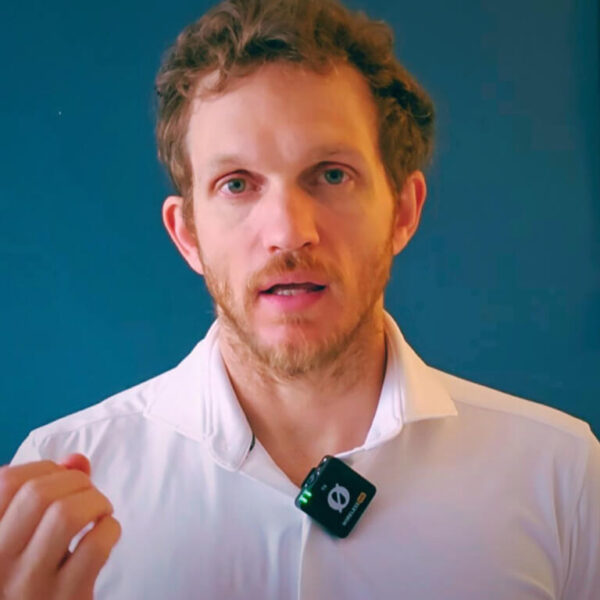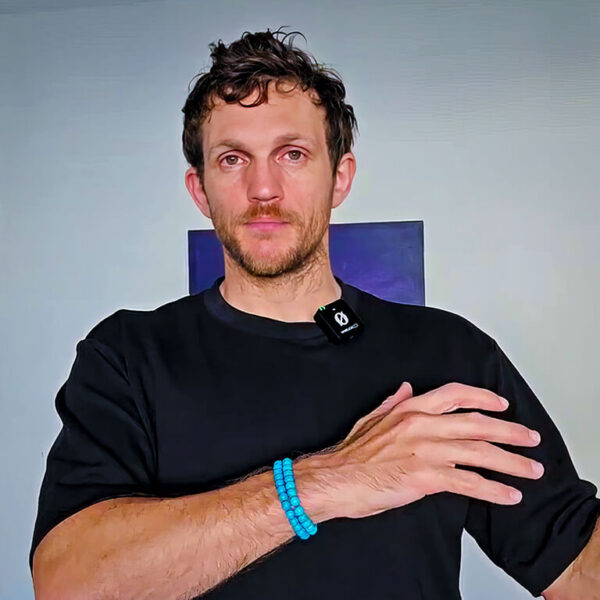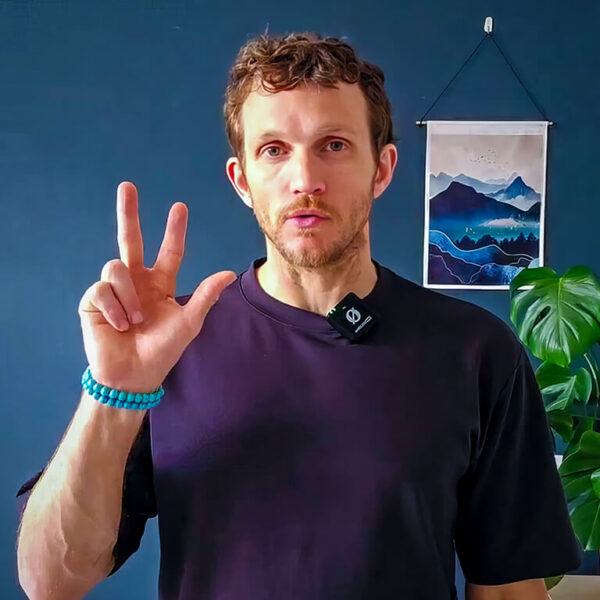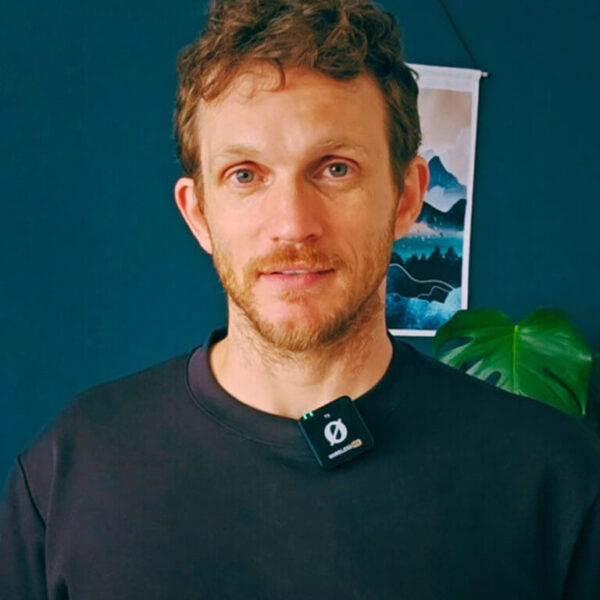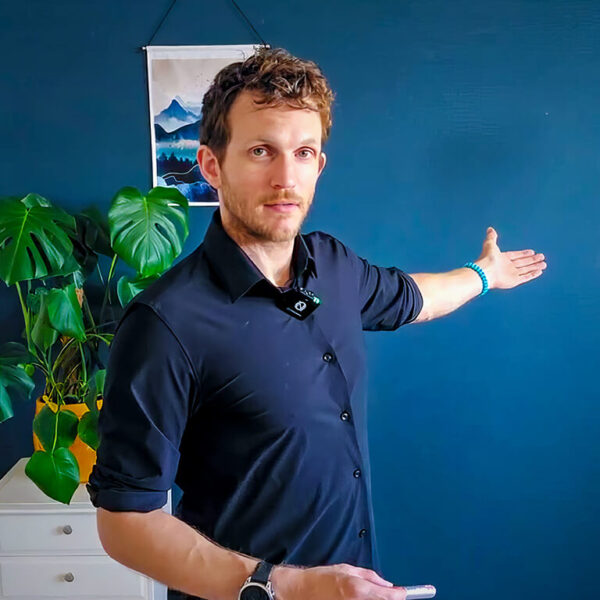
How To Handle Being Left Out | My Personal Difficulties
In today’s post, I am going to talk about something extremely raw that happened in my own life in the past 24 hours. It is about feeling left out. I will explain how I was left out, how I felt about it, and what you can do to overcome these situations.
My name is Gary Gunn, and I am a professional dating and self-confidence coach. This week I have been taking an acting class at RADA, the Royal Academy of Dramatic Arts. On the second day of the course something started to happen that made me feel completely left out.
Understanding what it means to be left out
The first part of understanding feeling left out is realizing that it comes from perception. It is not necessarily the truth. What I am sharing here is my perception of what happened, not what actually happened.
That distinction is important. If you recognize that you may be looking at events through a slightly different lens, it can help you feel calmer and less reactive.
The group dynamic
On the first day of the course there was myself, another man, and around nine women. On the second day the other man did not show up and one of the women was also absent. That meant it was the trainer, myself, and only women in the group.
At first I did not feel like there was any difference. I carried on learning and doing the exercises. But at the end of one exercise, when we were asked to give feedback, I shared an observation and it was met with huge resistance.
It was as if I had personally given someone unfair criticism. Before I knew it, people were jumping in, sticking up for each other, and I was suddenly at the center of what felt like being bullied.
That was the first moment of really feeling left out.
Why my feedback caused resistance
As a professional coach with years of experience, I have spent a long time working on my ability to observe. When I make an observation, it is not random. My feedback comes from years of practice helping people get closer to authenticity.
The Meisner technique, which we were working on, is about reaching reality and authenticity. When authenticity is missing, it sets off an alarm for me. My feedback was aimed at helping others move closer to being authentic.
But instead of being seen that way, it was treated as an attack. This happened just before the lunch break, and it left me surprised at how intense the emotional reaction was.
Confidence and the clash with experience
Looking back, I think part of the problem was that at the start of the course I told people I had never done an acting class before. In hindsight that may have been a mistake.
Some people in the group had been acting for years. Some had even been on television shows. Meanwhile I was brand new, yet I was extremely self-confident. That combination seemed to irritate a few people.
How can he be so confident when he has never done this before? That was the unspoken question in the room. And that contrast between my confidence and their experience seemed to create friction.
This tension built up in the group and added to the sense of being left out.
Lunch and being excluded
After the emotional feedback session we broke for lunch. I decided to test the situation. I thought to myself: let’s see if anyone asks me to come for lunch.
As people were leaving, one girl asked if I was coming. I said yes, and another said they were going to the same place as the day before. By the time I finished packing up my things and went downstairs, they were not there.
That was the moment it became clear that I was being left out.
I bought myself some food, sat alone, and reflected. Before lunch one of the older women in the group had already told me that I had “got a bit of abuse” in the feedback session. She recognized that people had ganged up on me. That reassurance meant I was not imagining it.
But sitting at lunch by myself, I could not deny that I was excluded.
Different worldviews clashing
While eating, I thought about what was happening. Everyone has a worldview. Mine was clashing with theirs. When worldviews collide, people will often do whatever they can to convince you that their view is right.
In emotional environments like this acting course, that tendency is even stronger. The exercises are difficult. The group is under pressure. People feel insecure and look for validation from each other.
My perspective was different. I was not there to seek validation. I was not there to be told I was right or wrong. I was there to learn, to make mistakes, and to grow.
That difference in approach created tension and left me on the outside.
Deciding to stay authentic
Even though I was feeling left out, I made a choice. I was not going to stop being myself.
If the instructor asked for feedback, I was going to give it. If I had an observation, I was going to share it. I was not going to go into my shell just because some people did not like me.
I was there to learn. I was there to add value. And I felt I had value to give. So even though I was excluded at lunch and challenged in the group, I decided to remain authentic.
When feedback turns into rejection
The afternoon session confirmed what I had already noticed. Every time I gave feedback, it was met with tension. Even if my point was valid, it was dismissed or twisted.
This is one of the hardest parts of feeling left out: when you know you are contributing something valuable, but the group refuses to accept it. Instead of listening, they shut you down.
It can feel like rejection of your entire identity, not just your words. That is why it hurts so much.
I realized that when you are confident in yourself, people who feel insecure may see you as a threat. They might not do it consciously, but they will try to silence you, exclude you, or undermine your presence.
Emotional triggers in group settings
During the exercises, people were showing visible emotions — frustration, sadness, even tears. The instructor guided us through these feelings, but it became clear that my presence was triggering emotions too.
This is another layer of being left out. Sometimes it is not about what you did wrong. It is about what you represent. In my case, my confidence highlighted the group’s insecurities.
If you have ever been excluded at school, work, or in a social circle, you will know the feeling. You walk into the room and the energy shifts. You can sense that you are not fully accepted.
Recognizing this helps you avoid internalizing the rejection. It is not always personal — sometimes you are simply a mirror reflecting something uncomfortable back at others.
The temptation to withdraw
When you are feeling left out, the easiest option is to shut down. To stop speaking up. To keep your head down and avoid drawing attention.
I felt that temptation strongly. Part of me thought: maybe I should just stop giving feedback, stay quiet, and get through the course. That would have been the “safe” choice.
But here is the problem: if you withdraw, you betray yourself. You silence your authenticity just to be accepted by the group. And in the long run, that makes you feel even worse.
So instead, I made a different choice. I kept contributing. I kept sharing. I kept showing up fully, even if that meant more resistance.
The deeper lesson about belonging
What this experience at RADA reminded me is that belonging has two sides. There is the external side, where you want to be accepted by others. And there is the internal side, where you accept yourself.
When you focus only on external belonging, you give away your power. You live at the mercy of group approval.
But when you cultivate internal belonging — self-acceptance, confidence, authenticity — you realize you do not need everyone’s approval. You can walk into any group, be yourself, and know your worth, even if you are left out.
This is the real secret to overcoming the pain of exclusion.
How to handle feeling left out in your own life
If you have been through something similar, here are some practical steps that helped me:
-
Recognize your perception vs reality
Often the feeling of being left out comes from interpretation. Ask yourself: what actually happened vs how did I interpret it? -
Look for allies
Even in my group, one person noticed the unfair treatment and reassured me. Focus on those who support you, even quietly. -
Stay authentic
Do not silence yourself just to fit in. Speak, contribute, and remain true to who you are. -
Shift your focus inward
Instead of chasing group approval, remind yourself of your values and reasons for being there. -
Turn exclusion into growth
Being left out can hurt, but it is also a chance to practice resilience, self-trust, and independence.
Turning rejection into strength
As the course went on, I realized something powerful: the more resistance I faced, the stronger I became.
Every moment of being excluded was a reminder that I did not need external validation to stand tall. I did not need to be liked by everyone to keep learning, growing, and becoming more authentic.
And that is the real gift of feeling left out.
It forces you to rely on yourself. It strips away the illusions of belonging so you can build genuine inner strength.
Why authenticity matters more than approval
When you chase approval, you dilute yourself. You become who the group wants you to be, not who you really are.
But when you stay authentic, you might not be accepted by everyone — yet you become unshakable. People may criticize, exclude, or reject you, but they cannot take away your authenticity.
That is why in dating, relationships, and life in general, authenticity always wins. If you hide your true self just to be accepted, you will never feel fulfilled. But if you stay true to who you are, the right people will naturally be drawn to you.
Final thoughts on feeling left out
If you are going through something similar right now — maybe at work, in your social group, or even in your family — remember this:
-
Being left out does not mean you are unworthy.
-
It means you are different. And difference is where growth begins.
-
The people who matter will see your value without you needing to prove it.
So instead of shrinking when you feel excluded, stand taller. Stay authentic. Use the discomfort as fuel to grow stronger.
Because the truth is, nobody can truly leave you out of your own life. The moment you choose yourself, you always belong.
Ready to build unshakable confidence?
This story is just one example of how I use real-life challenges to strengthen my own confidence. And it is exactly what I help my clients do — whether they are struggling in dating, social situations, or relationships.
If you are ready to stop chasing approval, start owning your value, and build the kind of unshakable self-confidence that makes people naturally drawn to you, then I can help.
You can take one of my digital training courses to start building your confidence today.
Or, if you are serious about deep transformation, you can apply to work with me one-to-one.
Either way, the next step is yours. Stop letting exclusion define you. Start creating the life where you always belong.
Written by Gary Gunn
I coach men to build real self-confidence so they can meet, attract and date the women they truly desire.
My coaching is practical, real-world and focused on lasting behavioural change.
Learn More About My Coaching
👉 My Books



